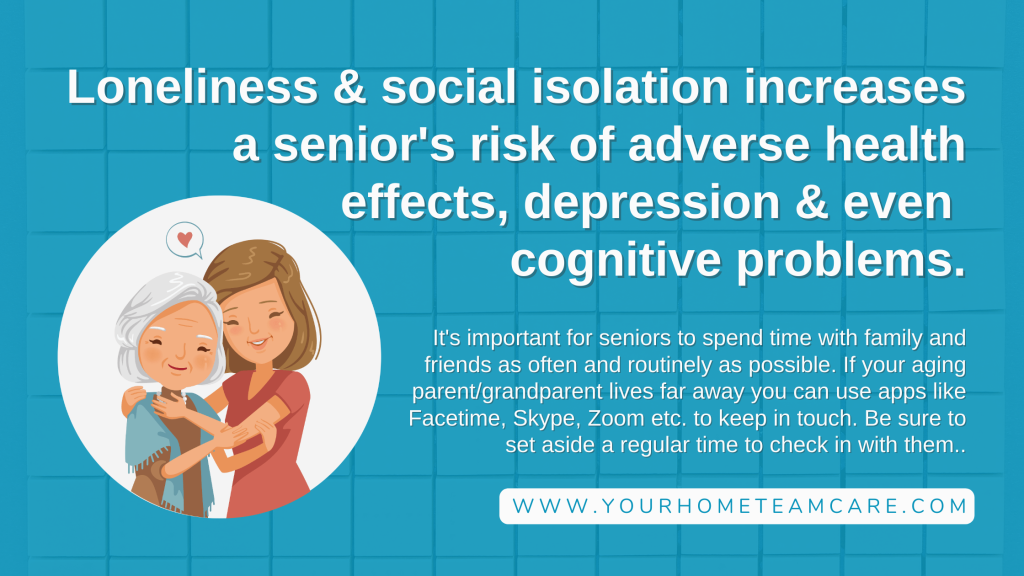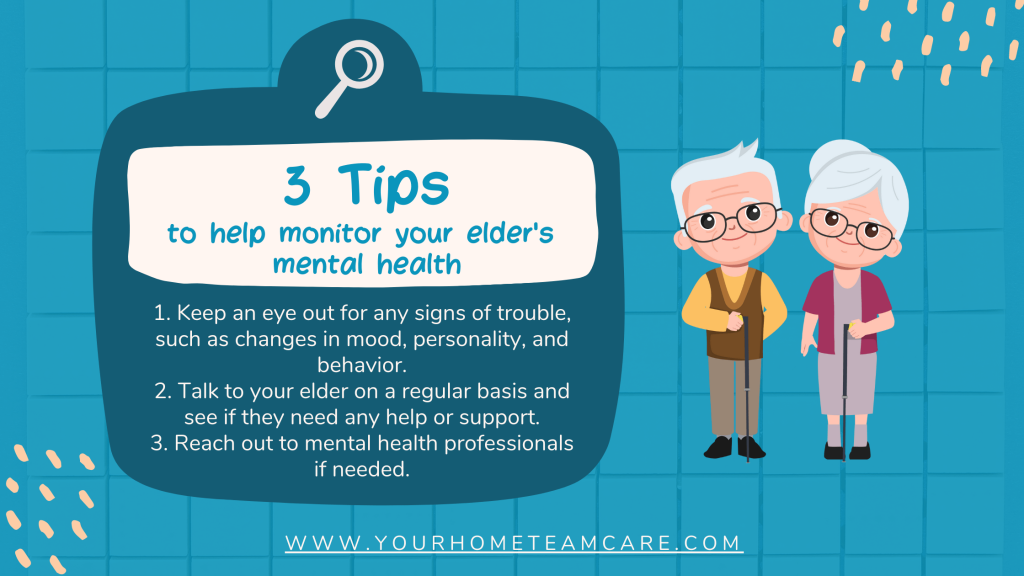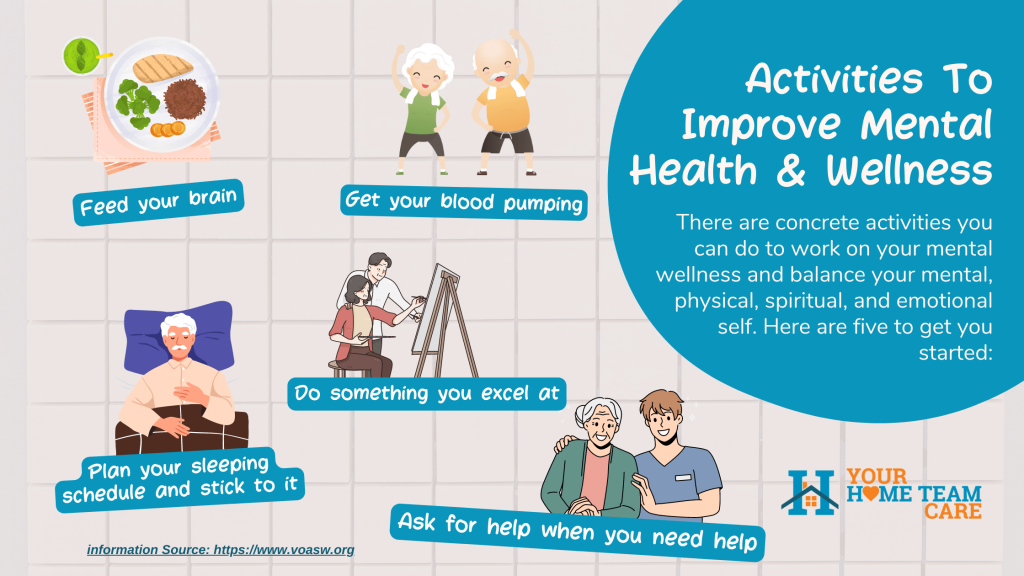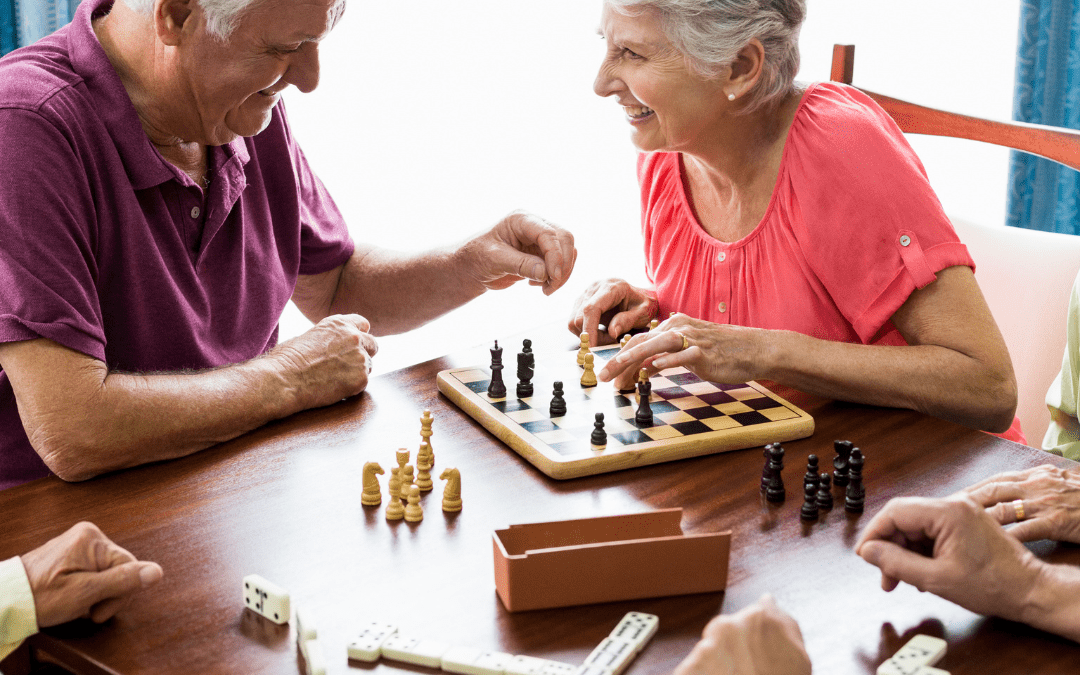Mental wellness is something that is important for the well-being of everyone, regardless of your age. Mental Wellness according to The World Health Organization is “A state of well-being in which the individual realizes his or her own abilities, can cope with the normal stresses of life, can work productively and fruitfully, and is able to make a contribution to his or her community.”
For seniors in particular it is important for them to maintain their mental health throughout their golden years, as this will greatly affect their quality of life. Depression, which is one of the most widespread conditions linked with suicide in older adults is a commonly under-recognized and under-treated medical condition.
In fact, some studies have found that many cases of depression in the elderly which resulted to suicide had about seventy-five percent of them visiting their primary care physician within a month of their suicide. However, not all depression in the elderly results in tragedies, but should always be given enough attention and treatment if diagnosed.

Later on in life, depression often coexists with other medical illnesses and disabilities. Additionally, aging is often accompanied by loss of key social support systems which are usually caused by the death of a spouse or siblings, relocation of residence and/or retirement. Because of these changes and the fact that they’re anticipated to slow down, family and doctors may miss the analysis of depression in seniors. This can result in a delay of effective treatment, and many elderly people find themselves having to handle the symptoms alone.
For seniors, depression tends to last longer . Nursing home patients’ studies have shown that the occurrence of depression significantly increased the chances of death. It has also been linked to increased risk of death following a heart attack. This is why it is important that seniors get evaluated and treated.
The risk factors of depression in seniors may include fear of death, recent loss of a loved one, living alone or social isolation, certain medicines or combination of medicines, previous history of depression, past suicide attempts, family history of major depressive disorder, damage to body image such as amputation, cancer surgery, or heart attack, presence of chronic or severe pain, substance abuse, and other illnesses.
Seniors can benefit from the companionship of a caregiver if they live alone. Even if a senior may be living with other family members, they may be left alone for long periods of time when their loved ones need to work or take care of other responsibilities. By getting the help of an in-home caregiver, it enables them to have someone to talk to and spend time with. This means that they will have someone to rely on, which can help ease the feeling of loneliness. A caregiver or senior companion can help with daily tasks, as well as accompany them to run errands, take a walk/exercise, practice a new hobby or attend a community event. The benefits of having a companion or caregiver should never be overlooked, as it helps seniors regain their sense of independence.

Taking care of our elders is essential, and monitoring their mental health should be part of the process. As our loved ones age, their mental health needs tend to get overlooked. While physical health is important, mental health plays an integral role in an elder’s quality of life. It’s important to recognize the signs of mental health issues in seniors and to provide medical and emotional support. Don’t underestimate the importance of mental health for our elders!
Mental Wellness Tip – Seniors Need To Have a Mental Health Assessment Done Routinely As They Age
Studies show that older adults tend to face mental health issues more than younger adults. Monitoring their mental health is vital to maintaining their physical and emotional well-being. Here are a few tips on monitoring your elder’s mental health:
- Keep an eye out for any signs of trouble, such as changes in mood, personality, and behavior.
- Talk to your elder on a regular basis and see if they need any help or support.
- Reach out to mental health professionals if needed.

It’s important to be aware of the mental health needs of the elderly. Studies suggest that over one-third of seniors suffer from depression, anxiety, or other mental health issues. It’s particularly important to identify and respond to signs of mental health decline in seniors, and to provide support with both psycho-social and medical interventions.
As people age, they may be more vulnerable to mental health issues due to age-related changes. It is important to engage in meaningful conversations with the elderly to help build a sense of community and support. YHTC Caregivers are trained to engage with elderly clients to have these meaningful conversations that can improve their quality of life for years to come.
Be sure to reach out to an elderly family member or friend and start a conversation about mental health today.

